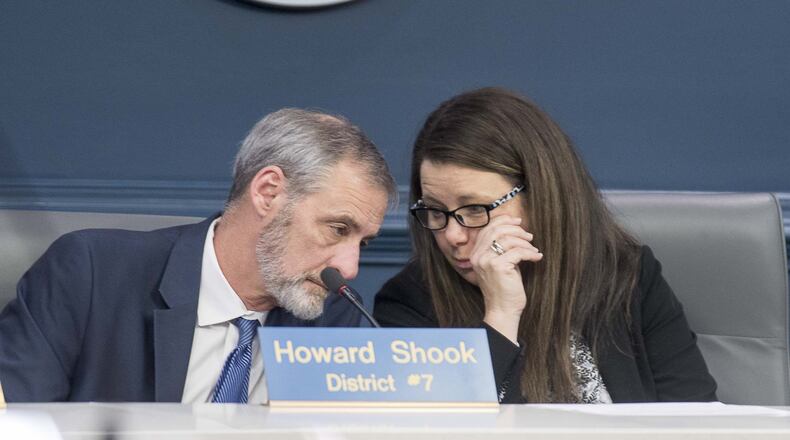A controversial proposal to create an Office of Inspector General passed a council committee with three yes votes, three abstensions and many unanswered questions about how much power the watchdog position should hold and whether it will be truly independent from the mayor’s office.
The proposal includes measures to fold the city’s auditor and ethics office under the newly establish IG — a move opposed by both agencies for fear that it would erode their independence.
Despite the opposition, the proposed ordinance passed after a three-hour specially called meeting of the council’s Finance Executive Committee on Friday.
The ambivalent vote reflected the uneasiness of tinkering with the city’s only two independent oversight agencies amid scandals revealed by a multi-year federal corruption agency.
“I am a strong supporter of the creation of an Inspector General, and I believe that ensuring ethics, audit and the new IG have the strongest possible structure to be effective and independent in their essential roles is my highest priority on this topic,” said councilman Matt Westmoreland, who abstained from the vote with Andre Dickens and Natalyn Archibong.
“At this point, I still have additional thoughts, questions and concerns about whether this is that,” he said.
Councilmembers Jennifer Ide, Howard Shook and J.P. Matzigkeit voted in favor of the ordinance.
The proposal was crafted by a handful of councilmembers and senior staff in Mayor Keisha Lance Bottoms' administration after intense negotiations under deadline pressure — city officials want to demonstrate progress on efforts to address City Hall corruption to help stave off any attempt by the Georgia General Assembly to place Atlanta's airport under state control.
The state’s legislative session was gaveled in on Monday.
Negotiations with the mayor’s office involved a series of meetings over the past eight weeks that grew in length and intenstity as the session grew near.
“Throughout this whole discussion I was one, among others, who felt it was critically important for ethics and audit to maintain their budgets, staffs and day-to-day operations,” Councilman Shook said.
Bottoms did not share that sentiment, as evidenced by an Executive Order she issued Monday that called for the new Inspector General to have total control over the audit and ethics staffs.
Bottoms' order raised questions about whether her proposal was retaliation for a joint investigation by the auditor and ethics officer earlier this year that found improprieties surrounding how the city hired members of Bottoms' campaign staff. Those issues were brought up again on Friday.
Clark Cunningham, a Georgia State University law professor who specializes in legal ethics, said Bottoms tried to undermine that investigation by blocking access to documents and forbidding the agencies from hiring outside lawyers.
“When the issue was her own suspected misconduct, it is profoundly disturbing that she put up barriers to the work of the independent ethics officer,” Cunningham said.
The compromise proposal revealed on Friday would allow the city’s ethics officer and auditor to retain control over their individual staffs, but the newly appointed IG would oversee their investigations. Those who favor combining the agencies argue it will allow them to better cooridinate and ensure they don’t duplicate efforts.
But Jabu Sengova, the city’s ethics officer, told The Atlanta Journal-Consitution that providing the IG oversight over her investigations could undermine her work.
“They could decide they wanted an investigation swept under the rug,” Sengova said.
Sengova said the ethics board presides over cases involving conflicts of interest, misuse of city property and failure to disclose financial interest. Those adjudicative functions of her office appear to have been stripped away by the proposal, she said.
The new IG would be appointed by a two-thirds vote of the IG’s governing board and approved by the mayor for a five-year term.
Shook said the auditor, ethics officer and other critics should take comfort in the fact that the proposal calls for the merger of the audit committee and ethics board. The incumbents of those bodies will serve out their terms on the new superboard.
The idea for an IG emerged last year out of several meetings held by the Task Force for the Promotion of Public Trust — a group attorneys, former judges, accountants that was assembled by Bottoms for the purpose of restoring confidence in a city government.
The administration has argued that its recommendations for the IG were born out of the task force.
But Bottoms has ignored some of the task force suggestions, such as putting the law department's compliance officer under the new IG's office. And she has made proposals never mentioned in the task force's report, which never suggested placing the auditor under the IG.
The mayor’s office responded to the questions raised at Friday’s meeting with a statement.
“The City needs and deserves meaningful reform to restore public trust,” it said. “The Mayor believes the establishment of an independent Inspector General is the next and necessary step, and appreciates Council’s work to fully establish this office.”
The legislation will be considered on Tuesday at another council committee meeting. It could be voted on by the full council that same day, but would then go back through a second round of committee negotiations and a second council vote because it is a charter amendment.
Shook anticipates additional changes.
“I’m agreeable to addressing some of the points that came up today,” he said. “But we are not going to start over.”
About the Author
Keep Reading
The Latest
Featured


